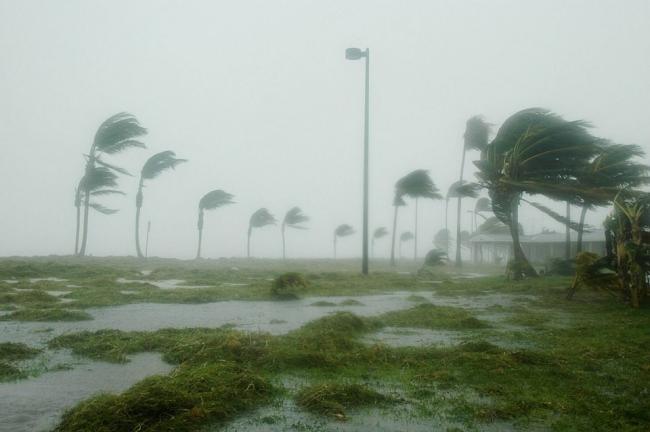Articles Menu

Nov. 23, 2020
Primary tabs
There’s “no vaccine for climate change” in a world that has seen more than 100 climate disasters since the COVID-19 pandemic was declared, and where 410,000 people have lost their lives to extreme weather and other climate impacts in the last decade, the International Red Cross warned in a report last week.
“Of course, COVID is there, it’s in front of us, it is affecting our families, our friends, our relatives,” said Jagan Chapagain, secretary-general of the International Federation of Red Cross and Red Crescent Societies (IFRC), in a virtual news conference. “It’s a very, very serious crisis the world is facing currently.”
“Our first responsibility is to protect communities that are most exposed and vulnerable to climate risks,” Chapagain said, but “there is a clear disconnect between where the climate risk is the greatest and where climate adaptation funding goes.” And “this disconnection could very well cost lives.”
All told, floods, storms, and heat waves have affected 1.7 billion people over the last 10 years, Reuters says, citing the release. And adaptation funding doesn’t always flow to the countries that need it most.
“Among the countries that were ranked as being most vulnerable to such disasters were Sudan, which has experienced record floods this year, and drought-prone Somalia. But these nations respectively received just 27 cents and 59 cents per person in climate adaptation funding in 2018,” the news agency writes. “Honduras, which [was] in the path of Hurricane Iota just days after being struck by Eta, receives just $1.22—a figure which IFRC’s Matthew Cochrane described as ‘grossly inadequate’.”
By contrast, “none of the five countries with the highest funding had a high vulnerability score.”
The Red Cross report showed climate and weather disasters increasing 35% since the 1990s, Al Jazeera reports, with heat waves and storms causing the most deaths in the last decade. In 2019, 308 natural disasters killed an estimated 24,400 people, and the large majority of them were climate- or weather-related.
“These disasters are already on the doorstep in every country around the world,” the report stated, and “with challenges like these, international solidarity is not only a moral responsibility but also the smart thing to do.”
The agency added that “investing in resilience in the most vulnerable places is more cost-effective than to accept continued increases in the cost of humanitarian response, and contributes to a safer, more prosperous and sustainable world for everyone.” But Chapagain pointed to donor countries’ accountability rules as one possible impediment.
“It’s probably not about donors getting it wrong but about how funding decisions get taken,” he told media, adding that donors could be “very, very demanding”.
[Top photo: florida-hurricane_12019pixabay-660x4002x.jpg ]